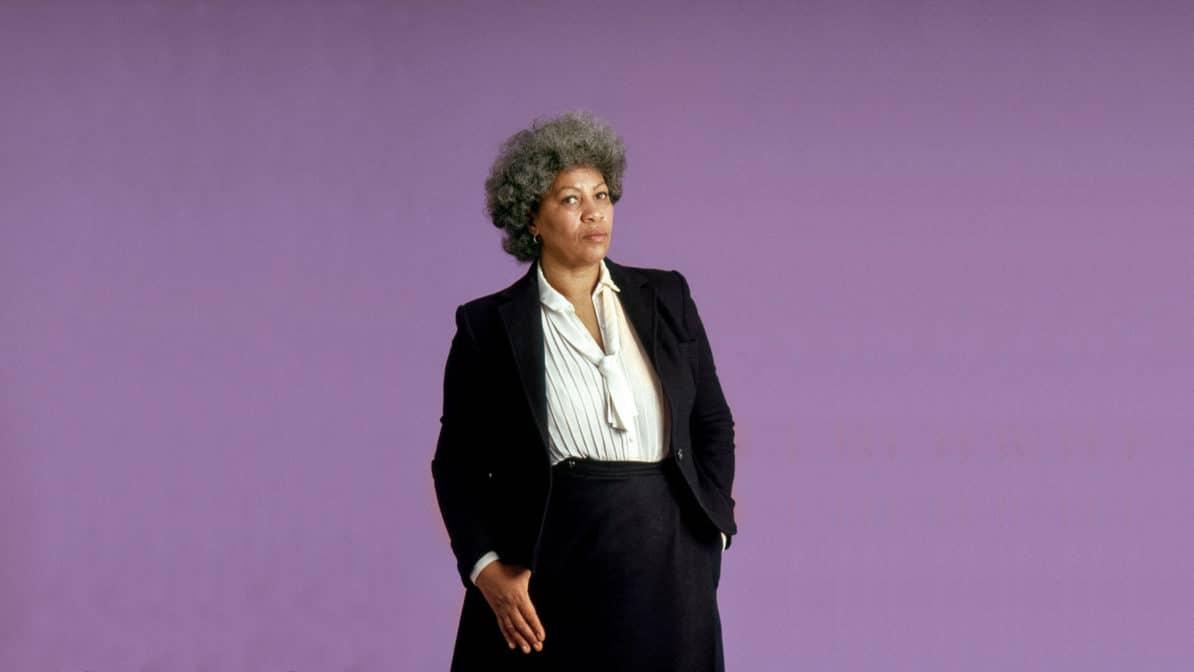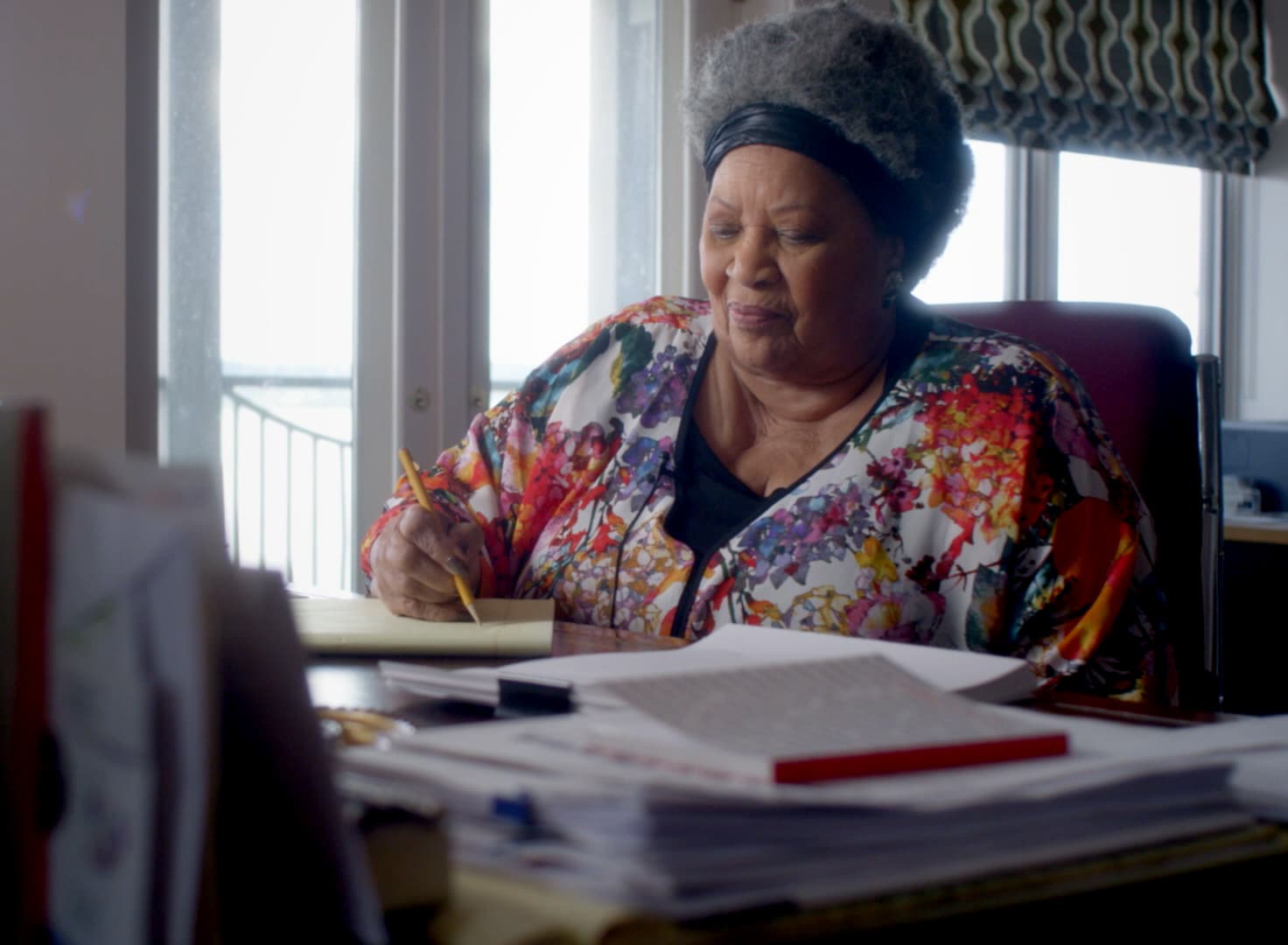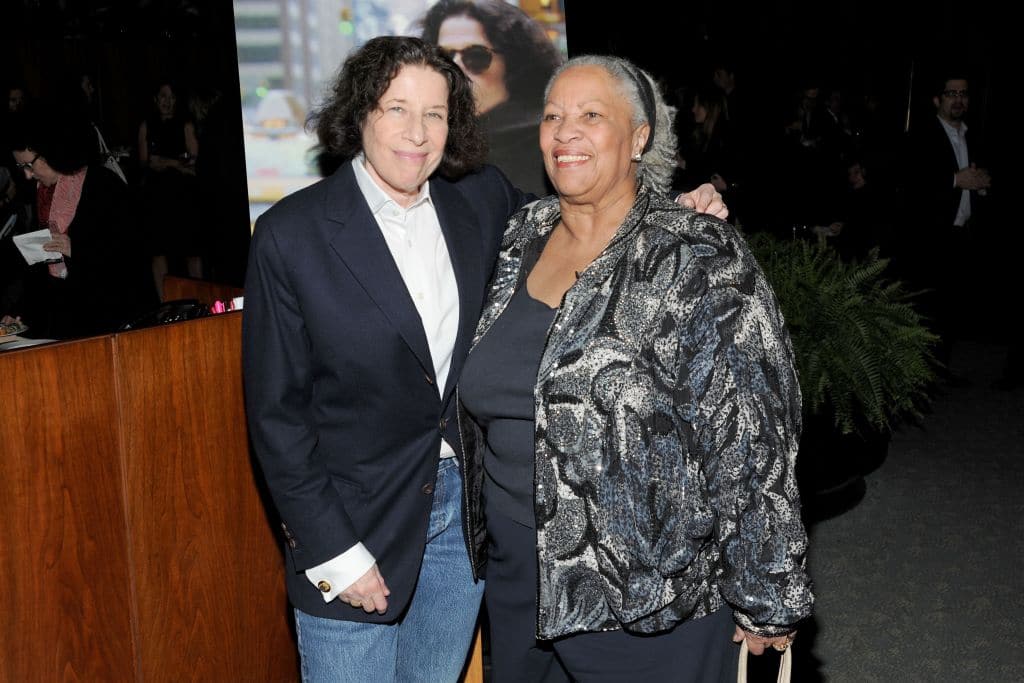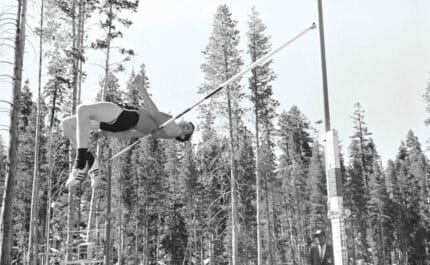Toni Morrison – as remembered by Fran Lebowitz
Toni Morrison was one of America's greatest writers. She won the Pulitzer, the Legion d'Honneur and a Presidential Medal of Freedom, and was the first black woman to win the Nobel Prize in Literature. From her 1970 debut 'The Bluest Eye' to 2015's 'God Help the Child', via 'Beloved', 'Sula' and 'Song of Solomon', her books are woven into the fabric of American life. But to fellow author Fran Lebowitz, Toni Morrison was her sweet-toothed friend with a passion for trashy TV

Toni Morrison in 1981, the year her fourth novel, Tar Baby, was published. Credit: Timothy Greenfield-Sanders, courtesy of Magnolia Pictures
5th August 2019 (Taken from: #36)
“Toni was 88 when she died and I was 68. It is very difficult for anyone younger than I am to appreciate what a cultural earthquake she caused. Toni changed the whole idea of what an American writer was and could be. She was of a generation in which if you asked someone to imagine an American writer, that writer was, of course, a white man. Not any more. Not after Toni. She invented this thing that didn’t exist. Sometimes people get this ‘voice of a generation’ stuff thrust upon them, but they don’t really live up to it. Toni really did. She was also my friend.
“I know exactly when I first met Toni, and this is not true of most people I know. It was in 1978. The Academy of American Poets was putting on a reading and they asked if I would like to participate. I called the organiser and said yes. He said, ‘We always have two people reading. Do you know who Toni Morrison is?’ She wasn’t that well known at the time, but I had read her [first three books]. So, I said, ‘Yes, of course.’ ‘Do you like her work?’ ‘I love it.’ ‘Would you like to read with her?’ ‘No’, I said, ‘it doesn’t make any sense.’ It just seemed like a very bizarre combination – we couldn’t be more different as writers. He said, ‘Well I think it’s a great combination,’ and it turned out he was right, and I was wrong.
“The reading was a great success – people were a little more open minded [to strange combinations] then, although apparently not me. As soon as we finished, Toni said, ‘We should go on the road with this,’ and we did. We became instant friends, which is the only time in my life that this has happened. An instant, strong friendship that lasted for 40 years. It was like a chemical reaction.

Toni Morrison shown in the documentary ‘Toni Morrison: The Pieces I Am’ (Timothy Greenfield-Sanders/Magnolia Pictures)
“We saw each other all the time. Toni was an editor at Random House, which was my publisher at the time. The company president called me up once and said, ‘You have to stop hanging around in Toni’s office. The two of you are in there all day smoking cigarettes and you’re laughing so much you’re disturbing people. Plus, Toni’s not getting her work done.’ Of course we didn’t listen to him and of course she got her work done.
“At a certain point, after her time as an editor, she left New York for Princeton [where she held the Robert F Goheen Chair in the Humanities from 1989 until she retired in 2006]. We’d talk on the phone for hours and I’d hang out with her there often. A few years ago I did a benefit for the public library in Princeton and a professor came over and said, ‘Toni used to have an office next to mine. The two of you laughing and smoking cigarettes all the time really disturbed me.’ So apparently this was something else we were able to take on the road.
“When Toni won the Nobel Prize in Literature [in 1993], she wanted all her friends to see her collect it, so she took a bunch of people, including me. She called us the Nobelettes. I would recommend that if you have a friend who wins a Nobel Prize that you go. It was a fantastic trip.
“The night of the ceremony, the streets [of Stockholm] were lined with people. It’s an amazing thing to see an entire city turn out to applaud economists, writers, scientists… That would never happen in the US, I can assure you. Especially not now.
“Toni loved this kind of thing. She loved awards. And what award could you love more than the Nobel Prize? That and receiving the Presidential Medal of Freedom from Obama, whom she adored, were very proud moments for her. Of course, the Nobel changed how people related to her, although they had always been very reverent toward Toni.
“Once I went to a reading of hers in a church. I noticed that while she was reading, the audience all had their copies of her book open and were reading along with her like it was a prayer. I said to her afterwards, ‘You don’t have an audience, you have a congregation.’ This is something I myself have never experienced, the reverence of other people. Not that I’d want to. But I think Toni felt a responsibility to people. She was very morally upright and it was important for her to be responsible to people who felt this way about her.
“Something many people would be shocked to learn about Toni was that she watched more TV than almost anyone I’ve ever known. She believed that you shouldn’t read when you’re writing – so she watched TV instead. She would watch anything. She loved the reality show Hoarders, about people who won’t throw anything away until their houses become filled from top to bottom. It seemed like an incredibly bizarre pastime for a genius, but that was definitely a part of her.

Fran Lebowitz and Toni Morrison pictured together in 2010. (Nicholas Hunt /Patrick McMullan via Getty Images)
“Toni also had the biggest sweet tooth. The amount of sugar she ate was mind-boggling – it was like what a five-year-old would do if their parents were away. When Toni was in hospital, visitors were very conscious: what should they bring the great Professor Morrison? They brought these first editions of Proust and fine chocolate. I bought her trashy celebrity magazines and a bunch of candy bars. Because that was what she liked. Proust would go untouched, and she would be reading US Weekly, telling me incredulously: ‘Last week it said that they got divorced, now it said that they got married again!’
“Toni liked tons of company. But she didn’t really like the city, where her friends were; she preferred to live in the country. She was sick for a long time before she died. And I waged a campaign to get her to spend more time in the city. I’d say, ‘Come to New York – the hospitals are better; the doctors are better; plus more people can visit you more often,’ because it took the whole day to go to where she lived. But nobody could change Toni’s mind. And we all went to see her as often as we could. Not that it was often enough. I would call her up and she’d say, ‘When are you coming to see me?’ I would say, ‘I came yesterday,’ and she would say, ‘But that was yesterday!’
“Now she is gone, but when someone like Toni dies, they’re still here because of the books. If you are yet to read her, read her in order and read everything – you will see how a writer develops. Read her novels, read her essays, read her speeches – her Nobel speech is a fantastic piece of writing – read every single thing that was published. I miss Toni horribly and I have thought to myself, ‘Well, you can reread the books,’ and I will. But I haven’t been able to do it yet; it’s too soon. But that’s the thing about books – they don’t disappear.”
Fran Lebowitz is interviewed in the critically acclaimed documentary Toni Morrison: The Pieces I Am which is available to stream now
Slow Journalism in your inbox, plus infographics, offers and more: sign up for the free DG newsletter. Sign me up
Thanks for signing up.








